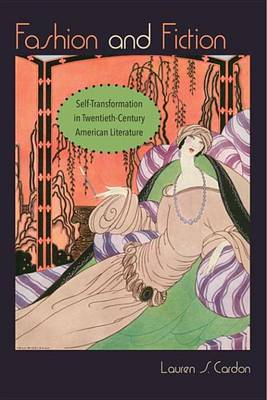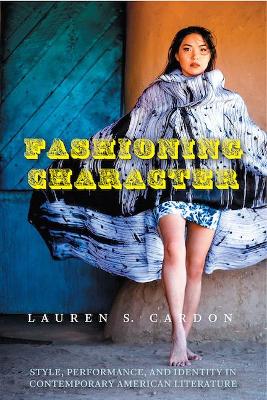Cultural Frames, Framing Culture
2 total works
During the twentieth century, the rise of the concept of Americanization-shedding ethnic origins and signs of ""otherness"" to embrace a constructed American identity-was accompanied by a rhetoric of personal transformation that would ultimately characterize the American Dream. The theme of self-transformation has remained a central cultural narrative in American literary, political, and sociological texts ranging from Jamestown narratives to immigrant memoirs, from slave narratives to Gone with the Wind, and from the rags-to-riches stories of Horatio Alger to the writings of Barack Obama. Such rhetoric feeds American myths of progress, upward mobility, and personal reinvention.
In Fashion and Fiction, Lauren S. Cardon draws a correlation between the American fashion industry and early twentieth-century literature. As American fashion diverged from a class-conscious industry governed by Parisian designers to become more commercial and democratic, she argues, fashion designers and journalists began appropriating the same themes of self-transformation to market new fashion trends. Cardon illustrates how canonical twentieth-century American writers, including Edith Wharton, Theodore Dreiser, F. Scott Fitzgerald, Ernest Hemingway, and Nella Larsen, symbolically used clothing to develop their characters and their narrative of upward mobility. As the industry evolved, Cardon shows, the characters in these texts increasingly enjoyed opportunities for individual expression and identity construction, allowing for temporary performances that offered not escapism but a testing of alternate identities in a quest for self-discovery.
In Fashion and Fiction, Lauren S. Cardon draws a correlation between the American fashion industry and early twentieth-century literature. As American fashion diverged from a class-conscious industry governed by Parisian designers to become more commercial and democratic, she argues, fashion designers and journalists began appropriating the same themes of self-transformation to market new fashion trends. Cardon illustrates how canonical twentieth-century American writers, including Edith Wharton, Theodore Dreiser, F. Scott Fitzgerald, Ernest Hemingway, and Nella Larsen, symbolically used clothing to develop their characters and their narrative of upward mobility. As the industry evolved, Cardon shows, the characters in these texts increasingly enjoyed opportunities for individual expression and identity construction, allowing for temporary performances that offered not escapism but a testing of alternate identities in a quest for self-discovery.
It's often said that we are what we wear. Tracing an American trajectory in fashion, Lauren Cardon shows how we become what we wear. Over the twentieth century, the American fashion industry diverged from its roots in Paris, expanding and attempting to reach as many consumers as possible. Fashion became a tool for social mobility. During the late twentieth century, the fashion industry offered something even more valuable to its consumers: the opportunity to explore and perform. The works Cardon examines by Sylvia Plath, Jack Kerouac, Toni Morrison, Sherman Alexie, and Aleshia Brevard, among others illustrate how American fashion, with its array of possibilities, has offered a vehicle for curating public personas. Characters explore a host of identities as fashion allows them to deepen their relationships with ethnic or cultural identity, to reject the social codes associated with economic privilege, or to forge connections with family and community. These temporary transformations, or performances, show that identity is a process constantly negotiated and questioned, never completely fixed.

